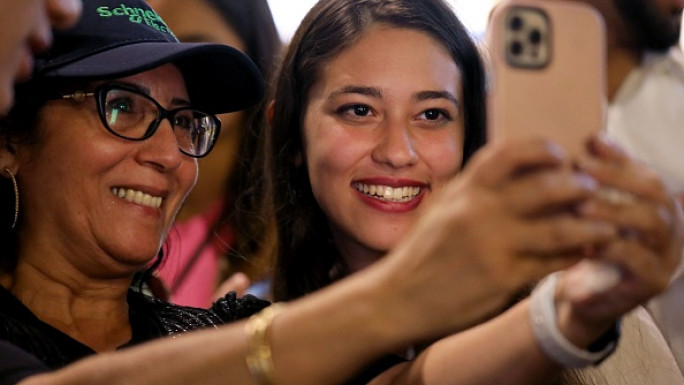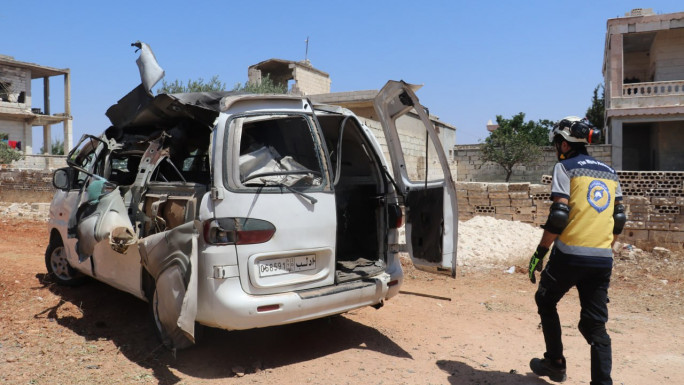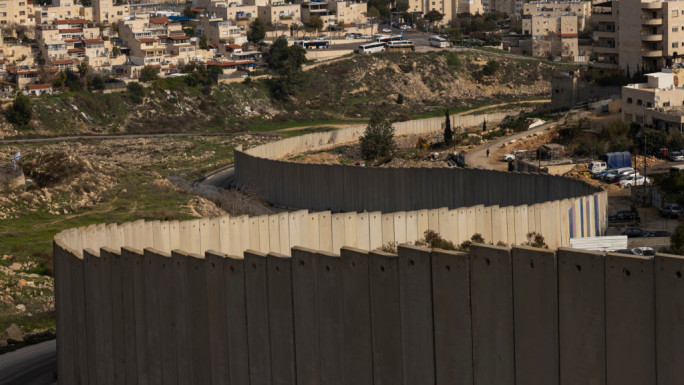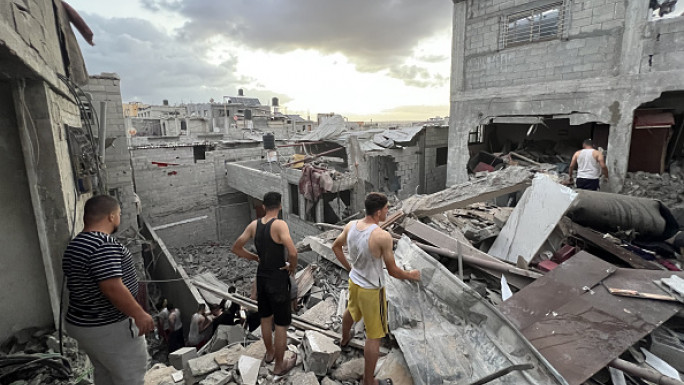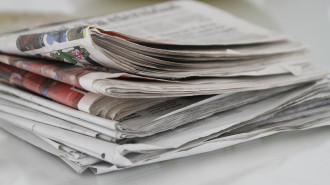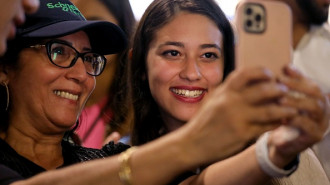Saudi envoy to US Princess Reema bint Bandar joins Israeli officials at Washington MEAD summit
Saudi Arabia’s ambassador to the United States, Princess Reema bint Bandar Al Saud, is participating in the inaugural Middle East–America Dialogue (MEAD) summit in Washington, D.C., from 8-9 September, an Israel-focused event alongside senior Israeli officials and Arab figures as backchannel discussions about potential normalization between Israel and Saudi Arabia continue despite the war in Gaza.
While efforts to broker a U.S.-backed normalisation agreement between the two countries remain on hold due to the war, officials from the United States and Israel have signalled recently they could resume following a Gaza ceasefire agreement and the 'lame-duck' period that follows the U.S. presidential election.
On Thursday, US Secretary of State Antony Blinken said he still hoped to seal a normalization deal between Israel and Saudi Arabia before President Joe Biden steps down in January.
“I think if we can get a ceasefire in Gaza, there remains an opportunity through the balance of this administration to move forward on normalization,” he told a news conference in Haiti.
Princess Reema appeared in a MEAD panel alongside the Moroccan and Bahraini ambassadors, both of whose countries signed normalization agreements with Israel alongside the UAE known as the 'Abraham Accords'. Though the content of her remarks was not made public, Israeli journalists in attendance described her speech as “inspiring.”
The invitation-only MEAD summit, co-chaired by pro-Israel U.S. diplomats Dennis Ross, Elliott Abrams, and former U.S. ambassadors to Israel Tom Nides and David Friedman, attracted over 200 top officials from the U.S., Israel, and the Middle East. According to Jewish Insider, MEAD is a successor to the Saban Forum, a significant U.S.-Israel policy conference that ended in 2017.
Held at the Waldorf-Astoria hotel, the summit offered off-the-record discussions on key regional issues, with the conflict between Israel and Hamas in Gaza taking centre stage. Gen. Gal Hirsch, Israel’s coordinator for hostages, gave an on-the-record statement, claiming Hamas was unwilling to negotiate due to a lack of international pressure, suggesting that global criticism of Israel may embolden the group to delay negotiations.
Former Israeli Defense Minister Benny Gantz called for shifting Israel's strategic focus from Gaza to Lebanon, highlighting that progress in Gaza had reached a decisive point and that Israel might need to focus on Hezbollah in the north.
The discussions also covered the Iranian nuclear 'threat', the future of Israeli-Arab normalization, and U.S. diplomacy in the Middle East.
Princess Reema's participation at MEAD builds on her earlier comments about Saudi Arabia’s Vision 2030, which envisions a unified and integrated Middle East including Israel. Speaking at the Aspen Festival of Ideas in 2023, she underscored the importance of including both Israel and Palestine in a vision for regional peace and prosperity, but criticized certain Israeli policies in the West Bank as 'obstacles to peace'.
Saudi Arabia's official position on normalization with Israel has been linked to making progress on the two-state solution. Saudi Foreign Minister Prince Faisal bin Farhan recently reiterated that the establishment of a Palestinian state remains a priority for Saudi Arabia, and any agreement with Israel would require addressing 'Palestinian concerns'.
Before the Gaza war erupted there was strong speculation that Saudi Arabia was about to normalise ties with Israel.
Saudi Arabia and Israel made some informal steps towards normalisation of their relations, including opening Saudi airspace to Israeli flights and receiving Israeli ministers at sporting events, but this falls short of recognition and opening embassies.

